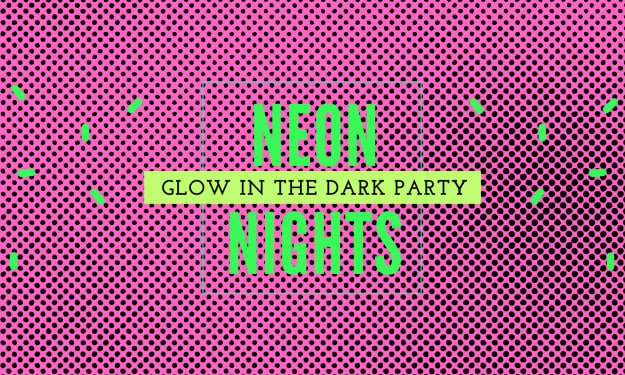"Mercury" Asks the Big Questions
Spinning through audible space, and spirituality, with Stevens, Muhly, Dessner, and McAlister.

There will always be certain questions that resonate with almost everyone. They stick to our hearts because of the universality of uncertainty that targets our shared humanity. Everyone asks questions, and everyone wonders what their purpose is. The repeated phrase “Where do you run to?”, reverberates off the cosmic walls that make up “Mercury.” Injected between verses of contemplation interspersed with narrative in a sort of AB poetic format, Sufjan Stevens’ beautifully synthesized voice carries the question that gets to the core human issue.
Where we run from determines what we are most afraid of, where we run to what we are most drawn to, and what we put the most hope in. For so many, this running is the pursuit of happiness. At the end of the running, there is peace and a reward. Others have accepted the joy of the running itself, enjoying each day as it is. And others know that this running in this life is only temporary, and if we’re running towards something outside of the confines of the visible world, the end goal is unbelievable and astronomical.
How fitting is it then that the question is repeated against the backdrop of the sounds of the seemingly infinite heavens? There is something otherworldly about this piece -- its backdrop and its probing questions. The deeply spiritual element continues as the song progresses.
Stevens’ quiet and innocent “and I am sorry” to me feels like confessing a sin, to someone or something. Perhaps to himself. “And I am sorry” I did not live up to what You have made me to be. “But I am faithful!” “But I am restless.” Finishing with “and I am consequence,” and “now I am messed up”. “Mercury” hits me as a prayer of supplication. And the echoing “where do you run to” phrase echoes in my head as a self-revelation, and it echoes in the lyrical closing of the song, and it echoes in sacred scriptures. Why do we pursue the things we do, why do we keep running in the wrong directions? Are we comfortable floundering in the desert like a fish out of water?
Or alone in the darkness of the night?
The images that are painted through the song here are vivid in every way. The minute the music begins, you are spinning through space, watching the planet rotate in high speed. As the small twangs of the guitar come in, so do bright beams of light. All the while still spinning. When Stevens’ voice echoes into the space, you can see and feel how vast this sky is. And after the lyrics finish, the sky is further transformed. The music tells a story of progress. It continues after the question. Maybe the question is answered and resolved? Or maybe it keeps spinning along with the planets.
Deborah Johnson’s accompanying lyric video captures the image literally. The spinning planet and repeated light flashes are the mindful meditation, spinning through the mind over and over again. There are flashes of recognition, and a spin into darkness. The background white scribbles in every way look like the frustrated pen markings of someone scratching out their work. Is this running on a hamster wheel? Are we stuck in a loop? As Stevens’ vocals continue, Johnson’s video follows a pattern. But after the lyrics end, the repetition breaks slightly. The planet disintegrates into small spheres, dancing with the background light in time with the music. They reform and spin and form groups. The original planet returns and follows a pathway, gently rolling down the track. Still spinning, but maybe with a destination.
“Mercury” swallows you. It drowns you, and you float underneath layers of ethereal electric guitar, repeating piano keys that imitate the stars, and the thick richness that is the dark of the night sky. It is the closing track after an epic saga that follows the journeys of other planets and elements of the cosmos. The lyrics of the album are inspired by Greek mythology – Mercury maybe less explicitly so. Mercury is more introspective and reflective than the other tracks from Planetarium, and ends the album off with the conclusion of unanswered questions – an aspect that is fully embracing of the music as art category. The track is visual, full of auditory images.
Planetarium was released in June 2017 by the label 4AD. Though “Mercury” itself more (sound-wise) resembles Stevens’ earlier work, the entire album is an equal collaboration betwewen Muhly, McAlister, and Dessner. The 4 produced the album to tell a story about the solar system. Bryce Dessner is known best as a member of the band The National, James McAlister a percussionist, Nico Muhly as a contemporary classical music composer, and Sufjan Stevens a singer-songwriter. Stevens’ albums range in style from folk to much more experimental and electronic. Though he tends to separate his faith from his music in obvious ways, Stevens has talked about his Christianity, even producing some covers of hymns. Nico Muhly has composed his own music and also worked alongside a large variety of musicians, including Phillip Glass, Bjork, Grizzly Bear, and has toured with Glen Hansard. Bryce Dessner, besides being a member of the well known band, The National, has also created substantial work as a composer and curator.
The song “Mercury” itself emphasizes mostly Stevens’ vocals and Muhly’s piano. It was based off of the mythology of the Greek messenger god Hermes, commonly associated with the Roman god “Mercurius”. In an interview, Sufjan Stevens’ reflects on the thoughts surrounding “Mercury” but also Planetarium as a whole, saying, "That's what's so interesting, there's a sort of beautiful, perfect order to life on earth that's so mysterious and so profound. And yet, as people, we really f*ck it up. We're so dysfunctional. And we seek guidance from the exterior world — from the heavens — to help us understand our purpose here, and to sort of create a sense of order." (Naddaff-Haffrey, 2017).
Note: This short essay is reworked from an excerpt of a meditative journal piece, written by the author, in 2017.
References
Naddaff-Hafrey,B. (2017, June). Watch Sufjan Stevens, Nico Muhly And Bryce Dessner Play 'Planetarium' Track 'Mercury'. NPR. Retrieved from http://www.npr.org/event/music/531907516/watch- sufjan-stevens-nico-muhly-and-bryce-dessner-play-planetarium-track-mercury
Barton, L.. (2017, June). Music of the spheres: the interstellar bromance of Planetarium. The Guardian. Retrieved from https://www.theguardian.com/music/2017/jun/12/sufjan-stevens-nico-muhly- bryce-dessner-planetarium
Kornhaber, S. (2017, June). A Musical Voyage through the Solar System, Darkly. The Atlantic. Retrieved from https://www.theatlantic.com/entertainment/archive/2017/06/planetarium-sufjan- stevens-nico-muhly-bryce-dessner-james-mcalister-review/529476/
About the Creator
Jess Nadine
Just trying to absorb the world around me, one thing at a time.






Comments
There are no comments for this story
Be the first to respond and start the conversation.